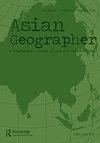“消费者没有看到老虎死于棕榈油种植园”:英国、马来西亚和新加坡消费者对棕榈油看法的跨文化比较研究
IF 2.2
Q2 GEOGRAPHY
引用次数: 10
摘要
摘要在过去的十年里,棕榈油已成为全球生产和消费最多的植物油。鉴于全球对棕榈油的需求不断增长,有必要促进最“可持续”形式的棕榈油的消费,以减轻已知的不可持续生产对环境和社会的影响。在这项研究中,我们比较了来自马来西亚、新加坡和英国三个国家的消费者对棕榈油及其可持续性的认知、知识和看法。通过结合在线调查、访谈和焦点小组,并以消费者行为理论为基础,我们发现这三个国家之间存在一些关键的差异和相似之处。与其他两个民族相比,马来西亚人更了解棕榈油,持有更积极的观点,而所有人都相对不熟悉“可持续棕榈油”的概念。每个国家只有一小部分受访者排除了购买可持续认证的棕榈油产品的可能性。然而,价格是一个决定因素,来自这三个国家的大多数受访者不愿意为“绿色”产品支付更多费用。考虑到消费者对棕榈油生产现实的脱节,我们主张改善面向消费者的关于其消费模式的社会、经济和环境影响的信息。最后,该研究强调了位置在塑造消费者对棕榈油看法方面的重要性,因此需要更好地了解关于可持续生产效益的积极信息宣传活动如何与棕榈油的本地化信息流相结合。本文章由计算机程序翻译,如有差异,请以英文原文为准。
“Consumers don’t see tigers dying in palm oil plantations”: a cross-cultural comparative study of UK, Malaysian and Singaporean consumer views of palm oil
ABSTRACT In the past decade, palm oil has become the most produced and consumed vegetable oil globally. In view of the growing global demand for palm oil, promoting consumption of the most “sustainable” form of palm oil is necessary to mitigate the known environmental and social impacts of unsustainable production. In this study, we compare consumer awareness, knowledge, and perceptions of palm oil and its sustainability amongst consumers from three countries: Malaysia, Singapore and the UK. Employing a combination of an online survey, interviews and focus groups and building on consumer behavior theories, we found a number of key differences and similarities between the three nationalities. Malaysians were more aware of palm oil and held more positive views compared to the other two nationalities, while all were relatively unfamiliar with the concept of “sustainable palm oil”. Only a small proportion of respondents from each country ruled out purchasing sustainably certified palm oil products. However, price was a determining factor and most respondents from the three countries were unwilling to pay more for “green” products. Considering the disconnect felt by consumers towards the realities of palm oil production, we argue for improved consumer-facing information on the socio, economic and environmental impacts of their consumption patterns. Finally, the study highlights the importance of place in shaping consumer views of palm oil and thus a need to better understand how positive information campaigns about the benefits of sustainable production can sit alongside localized information flows of palm oil.
求助全文
通过发布文献求助,成功后即可免费获取论文全文。
去求助
来源期刊

Asian Geographer
GEOGRAPHY-
CiteScore
3.30
自引率
0.00%
发文量
7
期刊介绍:
Asian Geographer disseminates knowledge about geographical problems and issues focusing on Asia and the Pacific Rim. Papers dealing with other regions should have a linkage to Asia and the Pacific Rim. Original and timely articles dealing with any field of physical or human geographical inquiries and methodologies will be considered for publication. We welcome, for example, submissions on people-environment interactions, urban and regional development, transport and large infrastructure, migration, natural disasters and their management, environment and energy issues. While the focus of the journal is placed on original research articles, review papers as well as viewpoints and research notes under the category of “Asian Geography in Brief” are also considered. Review papers should critically and constructively analyse the current state of understanding on geographical and planning topics in Asia. The ‘Asian Geography in Brief’ section welcomes submissions of applied geographical and planning research about Asia. The section aims to showcase (1) the diverse geography and planning of Asia; and (2) the diverse geographical and planning research about Asia. The journal will also publish special issues on particular themes or areas. Book reviews can be included from time to time.
 求助内容:
求助内容: 应助结果提醒方式:
应助结果提醒方式:


